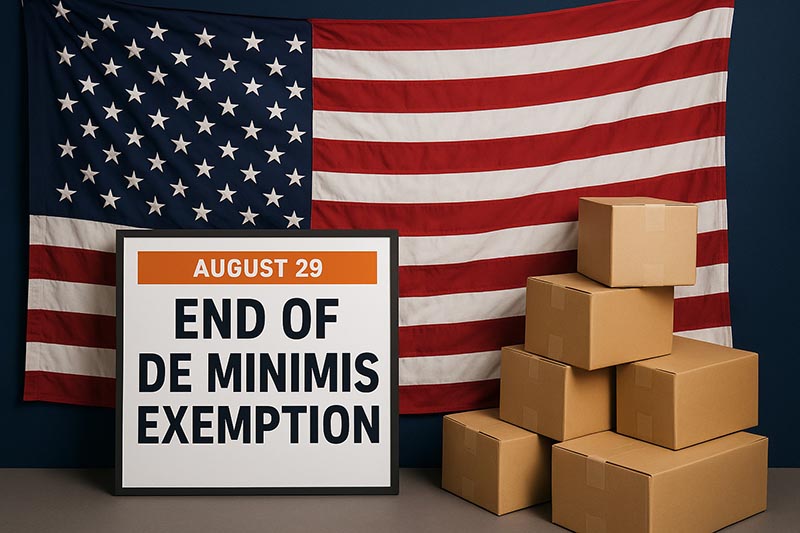Payam Javan: On August 29, the United States formally ended its long-standing de minimis import exemption for low-value goods, a move that will now subject all international shipments to duties. The policy shift, ordered by President Donald Trump in July, expands an earlier restriction on Chinese and Hong Kong shipments to cover the entire world. Administration officials argued the exemption had fueled drug trafficking, intellectual property theft, and unfair trade practices that harmed American businesses.
Senior White House adviser Peter Navarro called the measure a vital step to combat narcotics trafficking and protect U.S. manufacturers. He said the change could generate up to $10 billion annually in tariff revenue, create thousands of jobs, and reduce counterfeit and pirated goods entering the market. Under the new system, packages will either face ad valorem tariffs tied to their country of origin or temporary flat-rate duties ranging from $80 to $200 per item.
The global rollback has already disrupted shipping networks, with at least 25 national postal services—including those of Germany, Japan, and the United Kingdom—temporarily suspending outbound shipments to the U.S. Major e-commerce platforms and logistics firms such as eBay and UPS have warned of higher costs for consumers and significant supply chain adjustments. Supporters, including U.S. manufacturing and textile groups, hailed the end of the exemption as a long-overdue measure to curb cheap imports, while critics questioned the speed of implementation and warned of broader trade and retail impacts.









